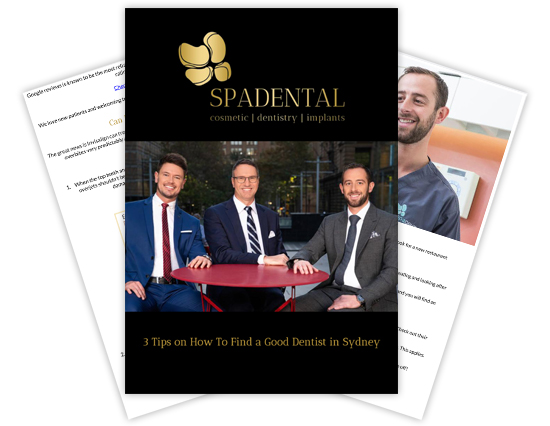Signs to look out for after your dental implants are fitted

When you have had an oral implant fitted, chances are, you will be on top of the world.
That gap in your teeth will soon be a thing of the past, and your smile is well on its way to being able to help you bite into and chew food again.
However, in about 0.1% of cases, there can be an issue with a newly fitted oral implant. As such, for the first few weeks after your implant is fitted, you need to know what to look out for, which can point to a serious problem that our team can resolve.
At Spa Dental, we are happy to offer our suitable patients dental implants Sydney, and we are always on hand to answer any questions you may have following the fitting. So, if you have any concerns, just give us a call!
Now, what are some of the signs that there may be an issue with your newly fitted dental implants Sydney? Read on to find out!
Persistent discomfort
After undergoing dental implants Sydney surgery, some degree of discomfort is normal during the initial healing period. However, if the soreness persists or intensifies over time, it may indicate an underlying issue. The soreness can be caused by infection, improper healing, or nerve damage. If you find that pain relief medication doesn’t alleviate the discomfort or the pain worsens, it is crucial to call our team ASAP.
Swelling
A certain amount of swelling and inflammation is expected after oral surgery, including an oral implant placement. However, if you notice excessive or increasing swelling in the gums, cheeks, or even the face, it could be a sign of an infection or complication. Infections around oral implants, known as peri-implantitis, can lead to bone loss and jeopardise the implant’s stability. If swelling persists beyond the first few days after surgery or appears to worsen, seek immediate dental attention.
Implant mobility
One of the primary goals of oral implant surgery is to achieve osseointegration, a process in which the implant fuses with the surrounding jawbone. This integration provides stability and strength to the implant. If you notice any movement or looseness of the implant, it is a cause for concern. Implant mobility can indicate a lack of successful integration or possible implant failure. In such cases, contact our dentist immediately to determine the cause and explore potential solutions.
Gum recession
Gum recession is when the gums around the implant start to pull back, exposing the implant’s base. This condition can lead to implant exposure and increased vulnerability to infections. Additionally, if you experience persistent bleeding in the area around the implant site, it could indicate infection or a problem with the healing process. Any signs of gum recession or persistent bleeding should be brought to the attention of our team immediately.
Persistent bad breath
Foul-smelling breath or a constant unpleasant taste in the mouth might indicate an infection or complication around the oral implant. If left untreated, these infections can cause further complications and jeopardise the implant’s long-term success. If you notice any persistent bad breath or an unusual taste in your mouth after implant surgery, consult our dentist for an evaluation.
DISCLAIMER
All treatment carries risks. Individual consultation is required with one of our practitioners to ensure that the treatment is right for you.




